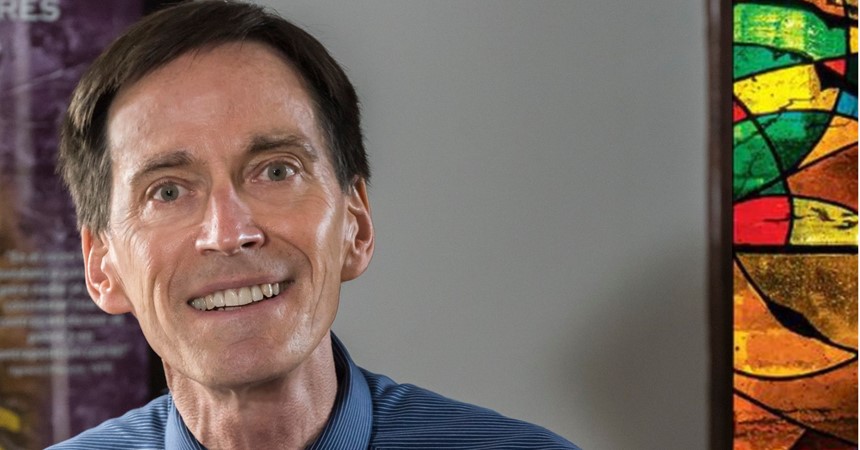For those who are not familiar with Richard Lennan he is a priest of the Diocese of Maitland-Newcastle who holds a doctorate from the University of Innsbruck (Austria). He is currently professor of systematic theology in the School of Theology and Ministry at Boston College. In his most recent publication ‘Tilling the Church-Theology for an Unfinished Project’, he shows how the ecclesial community looks toward the fullness of God’s reign but lives within the flux of history, the site of its relationship to the trinitarian God. In this way, God’s grace “tills” the church, constantly refreshing the tradition of faith and prompting the discipleship that embodies the gospel. Tilling the Church explores the possibilities for a more faithful, just, and creative church, one responsive to the movement of grace. Fruitful engagement with grace requires the church’s conversion, the ongoing formation of a community whose words and actions reflect the hope that grace engenders.
Having completed the book during Pentecost 2021 Richard believes that this is a time when we focus on the Holy Spirit as a source of grace and are reminded of its transformative role in the life of the church that it will always remain an unfinished project with a constant need of change.
The following quotes are from the introduction of the book and are an invitation to dive deep into how we are called to acknowledge the past, recognise the present and look forward with fresh eyes.
“The book employs “tilling the church” as a shorthand formula for all that contributes to the church’s authenticity and serves its growth. Faithful tilling, which can take shape as innovation, reform, or support for existing expressions of the church’s life, serves the future of the ecclesial community. Preeminent in the process of tilling are the elements that further conversion: learning from both earlier accomplishments and past failures; nourishing present signs of life; and embracing openness to the possibilities likely to emerge in the unknowable future. These actions all express a response to God’s call. All are likewise integral to the discipleship that embodies the church’s faithfulness in its engagement with the wider world. The elements of conversion make plain that growth for the church implies something other than gaining more members or attracting the acclaim of the wider world.”
“Only through the church’s conversion is it possible for grace to permeate and flavour every aspect of ecclesial life, all forms of the church’s relationship with God, other people, and the whole of God’s creation. Until the fulfillment of God’s reign, then, “tilling the church” remains a critical task, a means to unsettle complacency and break open the potential for growth.”
“As fruitful as the image of tilling the seed of God’s kingdom might be, the appropriation to the church of language proper to an agricultural process is not without its dangers, especially if it spirals downwards into a morass of increasingly awkward metaphors related to farming. Alert to that possibility—and anxious to avoid it—this volume employs “tilling” principally as a synonym for the panoply of grace-inspired actions that further the health of the church. Nowhere in its pages, then, will the book suggest that the ecclesial community designate a specific group of its members as “tillers,” nor will it nominate a class of ecclesial activities that are expressly classifiable as “tilling.” Rather, the book proposes that grace, which permeates the church and the wider world, works for the health of the community’s life and witness through a myriad of agents and means, including those bearing no explicitly religious label. In a way that parallels the embrace of integral ecology by Laudato Si’, the book considers “health” for the church as requiring attention to more than any single feature of ecclesial life.”
“To reflect the trinitarian God who sustains it, ecclesial health requires that all aspects of the church’s life exhibit the perichoresis, the dance-like connections and interrelationships characteristic of the Trinity. The church’s mission in the world and the internal ordering of the ecclesial community, then, must interweave and nurture each other in vibrant and creative ways that are responsive to grace.”
“The grace that animates the church is not a relic of the past, nor a vague memory, but fuel for the imagination of the ecclesial community in every age.”
“As the book develops “tilling” as its primary frame for reflecting on the ecclesial community and clarifying its mission, the relationship between grace and humanity will be its lodestar. The specifics of ecclesial life in every setting—past, present, and future—reflect the particular interweaving of grace and humanity that gives the church its unique identity.”
Father Richard will be holding several workshops and presentations which we encourage you to attend.
The publication Tilling the Church- Theology for an Unfinished Project can be purchased at the following events.
Tuesday 15 August- Diocesan Workshop- “The Church: Foundations, Challenges and Possibilities”
Maitland Gaol- 9.30am-3.00pm
Wednesday 16 August- Cathedral Lecture “Shaping the Church’s Future: The Grace of Creative Faithfulness” -6.00-7.30pm, followed by a light supper in the Toohey Room
Friday 18 August- Diocesan Workshop- “The Church: Foundations, Challenges and Possibilities”
Holy Name of Jesus Parish- Forster - 9.30am-3.00pm
To register go to: https://www.mn.catholic.org.au/church-mission/catholic-life/faith-formation/upcoming-events/
Follow mnnews.today on Facebook.
